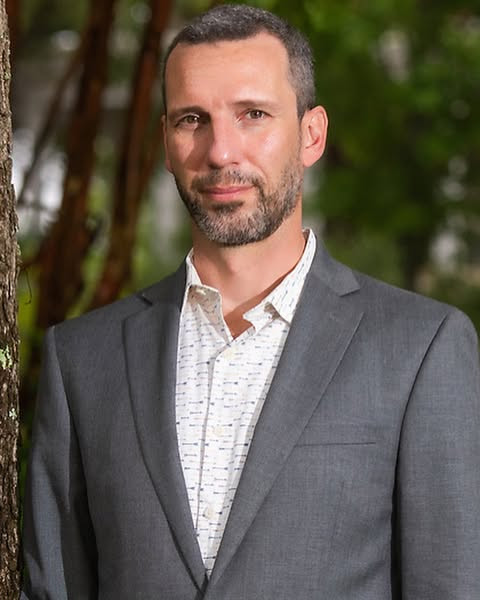A museum professional with extensive experience in Native American cultural preservation has been named the new managing director of The Indian Museum of North America at Crazy Horse Memorial.

Dr. Gordon Ambrosino, currently curator at the Plains Indian Museum within Wyoming's Buffalo Bill Center of the West, will begin his new role in late January 2025.
"Gordon's experience at the Buffalo Bill Center of the West, along with his experience working with tribes, will be a great resource for the Memorial," said Whitney A. Rencountre II, Crazy Horse Memorial CEO said in a statement.
Ambrosino brings significant experience in Native American cultural preservation and repatriation. He previously served as NAGPRA Coordinator at both the Maxwell Museum of Anthropology and Auburn University. His work also includes positions as Collections Manager and Repatriation Specialist at Chicago's Field Museum.
He holds a Ph.D. from La Universidad de Los Andes in Bogotá, Colombia, and currently serves as an Adjunct Assistant Professor in the Anthropology Department at the University of New Mexico.
The appointment comes as the Crazy Horse Memorial Foundation continues its mission to honor and preserve North American Indian culture through its museum collections, educational programs, and the ongoing mountain sculpture project.
Help us tell the stories that could save Native languages and food traditions
At a critical moment for Indian Country, Native News Online is embarking on our most ambitious reporting project yet: "Cultivating Culture," a three-year investigation into two forces shaping Native community survival—food sovereignty and language revitalization.
The devastating impact of COVID-19 accelerated the loss of Native elders and with them, irreplaceable cultural knowledge. Yet across tribal communities, innovative leaders are fighting back, reclaiming traditional food systems and breathing new life into Native languages. These aren't just cultural preservation efforts—they're powerful pathways to community health, healing, and resilience.
Our dedicated reporting team will spend three years documenting these stories through on-the-ground reporting in 18 tribal communities, producing over 200 in-depth stories, 18 podcast episodes, and multimedia content that amplifies Indigenous voices. We'll show policymakers, funders, and allies how cultural restoration directly impacts physical and mental wellness while celebrating successful models of sovereignty and self-determination.
This isn't corporate media parachuting into Indian Country for a quick story. This is sustained, relationship-based journalism by Native reporters who understand these communities. It's "Warrior Journalism"—fearless reporting that serves the 5.5 million readers who depend on us for news that mainstream media often ignores.
We need your help right now. While we've secured partial funding, we're still $450,000 short of our three-year budget. Our immediate goal is $25,000 this month to keep this critical work moving forward—funding reporter salaries, travel to remote communities, photography, and the deep reporting these stories deserve.
Every dollar directly supports Indigenous journalists telling Indigenous stories. Whether it's $5 or $50, your contribution ensures these vital narratives of resilience, innovation, and hope don't disappear into silence.
 The stakes couldn't be higher. Native languages are being lost at an alarming rate. Food insecurity plagues many tribal communities. But solutions are emerging, and these stories need to be told.
The stakes couldn't be higher. Native languages are being lost at an alarming rate. Food insecurity plagues many tribal communities. But solutions are emerging, and these stories need to be told.
Support independent Native journalism. Fund the stories that matter.
Levi Rickert (Potawatomi), Editor & Publisher
